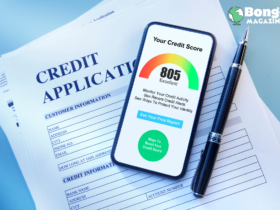To effectively navigate the process of paying off a mortgage faster, it is essential first to establish a clear understanding of how mortgages function. A mortgage is a type of loan intended exclusively for the purchase of real estate, with the asset itself acting as security. There are several key components to consider when assessing your mortgage: the principal, interest rates, loan terms, and amortization schedules.
The principal refers to the original amount borrowed from the lender. This sum represents the cost of the property minus any down payment made at the time of purchase. Over time, as you make payments, a portion of each monthly installment goes toward reducing the principal. Consequently, understanding how to pay off a mortgage faster entails recognizing the importance of this initial amount and how it decreases with regular payments.
Interest rates play a pivotal role in determining the total cost of your mortgage. This rate can be fixed or variable and affects the amount you pay in addition to the principal. A lower interest rate can decrease your overall repayment amount significantly, while a higher rate can lead to increased costs over time. Individuals often wonder, “what is the fastest way to pay off your mortgage? and obtaining a better interest rate by refinancing is one strategy.
The loan term, typically spanning 15 to 30 years, directly influences your monthly payments and the amount of interest paid throughout the loan’s lifespan. Shortening the loan term can result in higher monthly payments but will ultimately lead to substantial interest savings. In your calculations, consider potential extra payments; for instance, many homeowners question, “what happens if I pay an extra $100 a month on my mortgage?” Such an extra monthly contribution can significantly expedite the payoff process.
Additionally, an amortization schedule outlines how your payments will be allocated over time between the principal and interest. By familiarizing yourself with this schedule, you can develop strategies to make additional payments or adjustments tailored to your financial goals. The knowledge of these components empowers homeowners to make informed decisions that can dramatically enhance their journey toward financial freedom and a mortgage-free life.
Assessing Your Financial Situation
Before implementing strategies on how to pay off a mortgage faster, it is crucial for homeowners to assess their overall financial situation. This evaluation begins with a thorough review of income and expenses. Understanding how much money is coming in versus going out each month can provide clarity on what additional payments towards the mortgage are feasible without jeopardizing essential living conditions.
Begin by compiling a detailed list of all sources of income, including salaries, bonuses, and any side hustles. Next, delineate all monthly expenses, which may include utilities, groceries, insurance, and discretionary spending. This will help you determine the discretionary income available for additional mortgage payments.
In addition to your income and expenses, it is equally important to evaluate any outstanding debts along with their associated interest rates. Prioritizing high-interest debts can lead to significant savings and might influence your decision about how do I pay off a 30 year mortgage in 10 years. Taking care of these debts first could ensure that your financial foundation is solid before accelerating mortgage payments.
Moreover, maintaining an emergency fund is an essential component of financial planning. This reserve can serve as a safety net, preventing the need to rely on credit should unexpected expenses arise. It is generally advisable to have at least three to six months’ worth of living expenses saved. This will not only create peace of mind but also ensure that you can manage regular mortgage payments while striving to find the fastest way to pay off your mortgage.
In summary, a comprehensive assessment of income, expenses, debts, and savings is fundamental for anyone considering additional payments on their mortgage. By taking these steps, homeowners can ensure they remain on a sound financial footing while actively working to pay off their mortgage faster.
Making Extra Payments: A Practical Guide
One of the most effective strategies to reduce the time it takes to pay off a mortgage is to make extra payments. By contributing additional funds towards your mortgage, you can significantly lower your principal balance, which in turn reduces the amount of interest paid over the life of the loan. There are several practical methods for implementing this approach, each with its own benefits.
One popular method is to switch from monthly payments to bi-weekly payments. Instead of making one full payment each month, you would make half of your mortgage payment every two weeks. This results in 26 half-payments annually, which equates to 13 full payments a year. This extra payment can help you not only pay off your mortgage faster but also reduce the overall interest accrued. Many borrowers ask, “how do I pay off a 30-year mortgage in 10 years?” and switching to bi-weekly payments is one of the strategies that can help achieve this goal.
Another option is to make extra monthly payments. Even a small contribution—like an additional $100—can have a significant impact. To illustrate, consider “what happens if I pay an extra $100 a month on my mortgage?” Over time, this amount can reduce the overall principal, leading to lower interest payments and a shorter mortgage term. Additionally, lump-sum payments can also be beneficial if you receive a windfall, such as a tax refund or a bonus at work. By allocating these funds towards your mortgage, you enhance your ability to pay it off more quickly.
Regardless of the method chosen, making extra payments can not only accelerate the payoff process but also provide peace of mind as you work towards complete home ownership. It is clear that small, consistent actions can lead to substantial financial benefits over time, making the dream of home ownership much closer.
Refinancing Your Mortgage
Refinancing your mortgage can be an effective strategy on how to pay off a mortgage faster. This financial maneuver involves replacing your existing mortgage with a new loan, ideally one with better terms that can facilitate quicker repayment. One of the primary advantages of refinancing is the potential to secure a lower interest rate. A reduced rate can lead to significant savings over the life of the loan, thereby accelerating the timeline for paying off your mortgage.
Another prominent benefit is the option to switch from a 30-year mortgage to a 15-year term. While this change typically results in higher monthly payments, it often allows homeowners to save thousands of dollars in interest and can be a vital tactic for those asking themselves, “how do I pay off a 30-year mortgage in 10 years?” Shorter loan terms typically come with lower interest rates, thus enabling you to build equity more rapidly.
Moreover, refinancing can allow homeowners to effectively consolidate high-interest debts into their mortgage. This approach may lead to an overall decrease in monthly payments and is another strategy to consider if you are exploring the fastest way to pay off your mortgage. However, it is essential to assess the associated costs of refinancing, including closing fees and potential prepayment penalties. Engaging with a reputable lender can provide clarity and help navigate the complexities of the refinancing process.
It is important to consider your financial position and determine whether the circumstances warrant refinancing. If you anticipate staying in your home long enough to recoup the costs through lower payments, refinancing can be a beneficial step. Therefore, when contemplating how to pay off a mortgage faster, analyze the available refinancing options to establish if they align with your financial goals.
Choosing a Mortgage with a Shorter Term
When considering how to pay off a mortgage faster, selecting a mortgage with a shorter term is a crucial decision. The most common mortgage options available are typically the 15-year and the 30-year fixed-rate mortgages. While the longer term may seem appealing due to lower monthly payments, the shorter-term mortgages offer distinct financial advantages that can lead to significant interest savings and a quicker path to homeownership.
One of the primary benefits of a 15-year mortgage is the reduced amount of interest paid over the life of the loan. Homeowners can save tens of thousands of dollars in interest compared to a 30-year mortgage. For instance, while the interest rate for a 15-year mortgage may be slightly higher initially, the total interest cost is drastically less because the loan is paid off in half the time. This can be a compelling consideration for those eager to understand what is the fastest way to pay off your mortgage.
However, the trade-off for this advantage is the higher monthly payment associated with a shorter-term loan. Homeowners should evaluate whether their current financial situation can accommodate these increased payments without compromising other essential expenses. In some cases, individuals asking themselves how do I pay off a 30-year mortgage in 10 years, might find that committing to a 15-year mortgage will naturally align with this goal, fostering discipline and a structured payment habit.
Moreover, a significant increase in monthly payments may limit flexibility in one’s budget. It is vital to analyze personal financial goals and obligations to determine if a 15-year mortgage suits your circumstances. As homeowners weigh the pros and cons, they might also consider strategies like making additional monthly contributions, as paying an extra $100 a month on my mortgage can further expedite the payoff process, amassing substantial savings in the long run. Ultimately, making an informed choice between these options will aid in achieving the desired financial outcome.
Using Windfalls Wisely
Homeowners often find themselves in the fortunate position of receiving unexpected windfalls, such as bonuses, tax refunds, or inheritances. These monetary gifts can present a unique opportunity to expedite the mortgage repayment process. To effectively utilize these funds toward paying off a mortgage faster, it is essential to adopt a strategic approach. Allocating windfalls wisely can significantly lower your principal balance and, consequently, the interest costs over the life of the loan.
One of the most efficient methods to use an unexpected gain is to make additional payments directly toward the principal of your mortgage. For instance, if you are wondering how do I pay off a 30 year mortgage in 10 years?, applying a substantial portion of your windfall as an additional principal payment can help you achieve this goal. In many cases, a single moderate-sized windfall has the potential to shave several months or even years off your loan term.
Before deciding how to apply these funds, it is important to understand the specific terms of your mortgage. Some lenders impose prepayment penalties for early repayments. Therefore, reviewing your mortgage agreement to ensure that extra payments will not incur additional costs is crucial. If the terms are favorable, paying an extra $100 a month on your mortgage may greatly benefit you in combination with your windfall, allowing for quicker principal reduction.
Additionally, consider establishing a plan for recurring windfalls, such as annual bonuses or tax refunds. Consistently channeling these funds into your mortgage payments can yield significant long-term savings. When evaluating the fastest way to pay off your mortgage, leveraging such periodic payments helps in maintaining momentum toward your financial goals. By wisely utilizing windfalls, homeowners can become more proactive in their mortgage repayment strategies and achieve financial freedom sooner than anticipated.
Budgeting for Extra Payments
Creating a solid budget is an essential step in learning how to pay off a mortgage faster. A well-structured budget enables homeowners to allocate additional funds towards their mortgage payments, thus reducing the total interest paid and shortening the payoff period. To begin, assess your current financial situation by tracking your income and expenditures meticulously for at least a month. This provides a clear picture of your spending habits and helps identify areas where costs can be minimized.
Once you have a comprehensive overview of your financial landscape, categorize your expenses into fixed and variable costs. Fixed expenses, such as utility bills and insurance premiums, remain constant, while variable costs such as dining out, entertainment, and shopping can often be adjusted. Focus on identifying discretionary spending that can be reduced or eliminated altogether. For instance, cutting back on subscriptions or dining out can free up extra cash that can then be redirected toward your mortgage.
Next, prioritize your goals by including an extra payment toward your mortgage in your budget. This step is crucial when considering the fastest way to pay off your mortgage. For example, if you are considering paying an extra $100 a month on your mortgage, integrate this amount into your monthly budgeting plan. Make it a non-negotiable expense, similar to your mortgage payment, to help maintain disciplined financial habits.
Additionally, consider setting up an automatic transfer from your checking account to your mortgage principal. Automating this payment can simplify the process, ensuring that you consistently contribute extra funds towards paying off your loan. Stick with your budget and regularly review your financial plan. Adjust as necessary to continually align with your goals. In conclusion, by adopting a strategic budgeting approach, you can effectively contribute extra payments towards your mortgage, thus achieving your objective of financial freedom sooner.
The Psychological Benefits of Paying Off Your Mortgage Faster
Paying off a mortgage faster than the standard terms can offer significant psychological benefits that extend beyond mere financial savings. One of the primary advantages is the feeling of financial freedom. Homeowners often find that once the mortgage is eliminated, they experience a profound sense of relief and liberation, knowing that they own their property outright. This newfound freedom can lead to greater peace of mind and overall happiness, as the burden of monthly payments is lifted.
Additionally, reducing or eliminating mortgage debt can significantly lower stress levels. Many individuals experience anxiety related to financial obligations, and a mortgage represents one of the largest debts a person can carry. By actively seeking ways on how to pay off a mortgage faster, such as making extra payments or refinancing, homeowners can take control of their financial situation. This proactive approach not only reduces stress associated with long-term debt but also instills a sense of empowerment. The journey toward being debt-free reinforces positive financial habits and decision-making.
Moreover, achieving the goal of paying off your mortgage earlier can foster a sense of accomplishment. Setting a goal and working diligently to reach it can enhance self-esteem and motivation. Homeowners who successfully navigate the question of how do I pay off a 30 year mortgage in 10 years? often find that this achievement translates into other areas of their lives. The discipline required to meet such goals can lead to positive changes, encouraging individuals to tackle other financial or personal challenges with increased confidence.
Visualizing a debt-free future can further amplify these psychological benefits. Envisioning the possibility of using the funds previously allocated to mortgage payments for investments, travel, or other life experiences can inspire homeowners to remain committed to their repayment strategies. The prospect of financial independence can significantly enhance an individual’s overall quality of life, creating a more optimistic outlook on the future.
Consulting with Financial Experts
When it comes to determining how to pay off a mortgage faster, consulting with financial experts is a prudent step for homeowners. Various professionals can offer tailored advice that considers your unique circumstances and long-term financial goals. A financial planner, for instance, can help you examine your overall financial health, create a budget, and understand the implications of different repayment strategies. They can provide insight into how much additional money you can realistically allocate towards your mortgage payments each month.
In addition to financial planners, mortgage advisors specialize in the specifics of mortgage products and the associated payment options. They can guide you on how do I pay off a 30-year mortgage in 10 years? by evaluating different repayment structures such as bi-weekly payments or making lump sum payments when possible. These advisors will delve into the specifics of your current mortgage terms and help identify the fastest way to pay off your mortgage without incurring penalties or adverse effects on your financial stability.
Furthermore, working with real estate professionals may provide insights regarding potential refinancing options that could lower your interest rates, ultimately shortening the loan term. Remember, tailored advice is crucial as each homeowner’s situation varies significantly; what works for one individual might not be suitable for another. It is advisable to gather several opinions and compare strategies to understand all available avenues toward achieving your goal of mortgage freedom swiftly. By engaging with such financial experts, you are equipping yourself with knowledge that enhances decision-making, ultimately leading to effective mortgage repayment strategies.








Leave a Reply